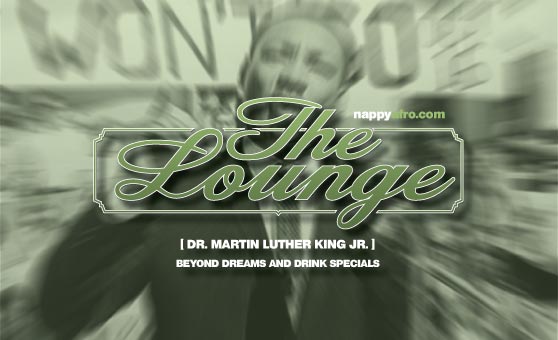In today’s microwave society of here today, gone tomorrow, and instant gratification over delayed reward, it is amazing to see the things that are able to stand the test of time. People change their minds and what they care about the same way they change the channel; often. Rarely anymore can people agree with anything past the latest news cycle, opinion poll or celebrity tweet. Consistency today is all but inconceivable.
It is with this reality in mind that makes the enduring legacy of Dr. Martin Luther King Jr. so incredible. It has been almost 45 years since the civil rights activist was slain in Memphis while supporting black sanitation workers in their fight to unionize. Today King is one of the most beloved figures in modern history. He is the only person to have a federal holiday named after him, and the only non president to have a memorial in the National Mall. His 1963 “I Have A Dream” speech delivered at the March on Washington is exhaustively quoted and reinterpreted by politicians and helped King become cemented as one of the greatest orators in history. Countless movies, documentaries and biographies have been made to document and preserve King’s story.
Yet with so much documentation on King the man it is startling to see the disconnect between our understanding of King’s ideology and what we think it is.
Some of the blame cannot be placed on the public, as King’s image and philosophy have long been co-opted by conservatives into this watered down, Kumbaya singing, non-threatening individual. This is why the Dream speech is so popular, because it contains the famous mountain top scene where children of all races are co-mingling. A scene which is interpreted as peace is obtained by racial blindness (aka ignore colored people’s problems long enough and eventually it’ll all work out). What is forgotten however is that King starts the speech by stating that, “the American government has written the Negro a bad check, a check which has come back marked insufficient funds.”
Some of King’s detractors thought he was soft because of his non violent approach. Don’t get it twisted, King was gangsta. King led demonstrators into heavily armed territories without flinching. He was deeply influenced by Gandhi and his ability to peacefully fight British colonialism through moral superiority. King knew that America was in a precarious situation in the 50’s and 60’s as it tried to use moral supremacy to solidify their position against countries like Russia, Korea, and Vietnam. King knew that his people could not fight a US Army, but he could shame the country as it attacked and dehumanized its own people on national and international broadcasts, causing people here and abroad to question their positions on race. It was this commitment to non-violence that helped King pressure presidents Kennedy and Johnson into signing the Civil Rights Act of 1964.

What is also ironic about King’s universal acceptance is that the man was deeply hated throughout the later years of his career. 1965 saw King speak out against the Vietnam War. As King saw the suffering of the Vietnamese overseas he saw the need to speak more directly on the behalf of all minorities in the U.S. The backlash came from almost every direction. The White House and other White liberal politicians denounced King as unpatriotic and withdrew support and funding for the movement. African Americans felt betrayed that King would speak on behalf of other minorities, some feeling that he was not dedicated enough to the Black plight. With King being vilified as a non-patriot and possible Communist, he did not have the White support that could have made his campaign in the North for equal housing rights more successful. King suffered huge losses in Chicago and even had to cancel marches and demonstrations due to threats of violence. This caused younger African Americans to view King as weak and ineffectual, giving rise to the Black Power movement and militant groups like the Black Panthers.
Yet despite dwindling funds, declining support and the FBI tapping his phones, King persevered unmoved. He continued to champion causes for Blacks, the poor, disabled and other minority groups. King had the sense and compassion to realize that their plight was just as important and dire as our own, instead of buying into the ‘pie is only so big’ idea that conjures divisive animosity.
Sadly, most people don’t get to see the full scope of Martin Luther King Jr. Even worse is where they are seeing him. Folks today are more likely to see King’s face superimposed on a party flier next to half naked models than they are to see his words in a book. People rather shake their ass in the club rather than shake their fists in protest. Don’t get me wrong, I love a good party just as much as the next person. I’m not even mad at folks who want to party the night before. Just please don’t do it thinking that you’re honoring the man or his work. You getting twerked on by some big booty Judy was not the service that King was advocating for. Hopefully we can find a better way to honor King than free before 11.


